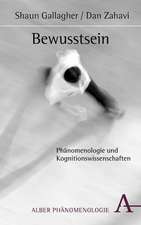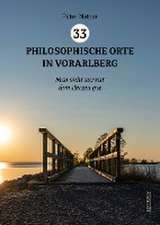Thoughtings: Puzzles, Problems and Paradoxes in Poetry to Think with: The Philosophy Foundation
Autor Peter Worley, Andrew Day Michael Rosenen Limba Engleză Hardback – 15 apr 2013
Thoughtings..... is a poetry collection with a difference.
The name Thoughtings was inspired by a five-year old who, when asked to explain what thinking is without using the word "think" said, "It's when youre thoughting."
Children love pondering big, philosophical questions like, "Does the universe end?" "Where is my mind?" and "Can something be true and false at the same time?" These verses capture that impulse in the growing mind, and feed it further.
These are not poems, or at least, not in the traditional sense of the word. . . . They are a kind of poem specifically designed around a particular puzzle or problem that might be thought more philosophy than poetry.
Here's to the joy of puzzlement!
"The Thought":
I had a thought
I kept it in my mind
Where's that?
My mind is in my brain
Which is in my head
Which is under my hat.
Peter Worley works with The Philosophy Foundation—a team of enthusiasts who promote and train teachers and young people in philosophy worldwide as part of the charity's work.
Andrew Day has a background in language teaching and a degree in philosophy and social anthropology, the combination of which have sparked his passionate curiosity into the part that language plays in the development of thinking.
The name Thoughtings was inspired by a five-year old who, when asked to explain what thinking is without using the word "think" said, "It's when youre thoughting."
Children love pondering big, philosophical questions like, "Does the universe end?" "Where is my mind?" and "Can something be true and false at the same time?" These verses capture that impulse in the growing mind, and feed it further.
These are not poems, or at least, not in the traditional sense of the word. . . . They are a kind of poem specifically designed around a particular puzzle or problem that might be thought more philosophy than poetry.
Here's to the joy of puzzlement!
"The Thought":
I had a thought
I kept it in my mind
Where's that?
My mind is in my brain
Which is in my head
Which is under my hat.
Peter Worley works with The Philosophy Foundation—a team of enthusiasts who promote and train teachers and young people in philosophy worldwide as part of the charity's work.
Andrew Day has a background in language teaching and a degree in philosophy and social anthropology, the combination of which have sparked his passionate curiosity into the part that language plays in the development of thinking.
Preț: 98.42 lei
Nou
Puncte Express: 148
Preț estimativ în valută:
18.83€ • 19.72$ • 15.58£
18.83€ • 19.72$ • 15.58£
Carte disponibilă
Livrare economică 17-31 martie
Livrare express 28 februarie-06 martie pentru 23.98 lei
Preluare comenzi: 021 569.72.76
Specificații
ISBN-13: 9781781350874
ISBN-10: 1781350876
Pagini: 198
Ilustrații: Illustrations
Dimensiuni: 135 x 196 x 25 mm
Greutate: 0.34 kg
Editura: Crown House Publishing
Seria The Philosophy Foundation
Locul publicării:United Kingdom
ISBN-10: 1781350876
Pagini: 198
Ilustrații: Illustrations
Dimensiuni: 135 x 196 x 25 mm
Greutate: 0.34 kg
Editura: Crown House Publishing
Seria The Philosophy Foundation
Locul publicării:United Kingdom
Cuprins
Foreword, or Forward? Or Backward? Or in both directions at the same time?
A Thoughtroduction
Introduction: Are Things Always What They Seem To Us To Be?
Minds and Brains
The Thought
The Thought Fight
Ideas
Can I Think?
Between My Ears
Word Wonders
A Long Word
Nosense
Punktuation
It Started in the Library
The Wronger
Metaphor
A Town Called That
The Rhyme Behind the Rhythm
You, Me and My Shelf
The Quest
Without an ‘M’ in the Alphabet
The Sesquepedalianist
Poems To Do
How Long Is a String of Letters?
Order!
Is There Something In It?
Invisible Punctuation
Death by Punctuation
Archaeology
Anthology of Unwritten Poems
Number Wonders
Infinity Add One
6,800,000,000
The 2-Square
Base 10
Prhyme
Two Twos
Number-Land
Puzzles and Paradoxes
Impossibling
The Other Hand
This Poem Is False
Tralse
A Disappearing Riddle
Socrates’ Puzzle
You, Me, Aliens and Others
From Me To You
An Other Poem
The Yeah-Coz-Fingee
Pencil Person
Who’s That?
Thing-a-Me!
That’s Me
What Fred Said
Where’s Mr Nobody?
Socrates
Space, Time and Other Weird Things
Atoms
Where Did Yesterday Go?
A Birthday Surprise
The Law of Grab-ity
Littlest
Petering
A Time Machine
Space
Possible World?
Mostly Made of Space
Light from Stars
The Stone
Flow
How Do You Know That?
Colour
History
The Capital of France
Love, Goodness and Happiness
The Wicked Which
Miss Not Unhappy
What Is Happiness?
I Love My Nan
Am I Good?
The Ship of Friends
Naughty-Land
Happy Sad
School Rules
Are Opinions Never Wrong?
Do It
Big School
It’s the Rules!
Are You Free?
Bite
Déjà Vu
Asteroid
Lines
It Wasn’t Me!
Outroduction
Bliss
Appendix I: How To Use a Thoughting
Appendix II: Sample Lesson Plan
Recenzii
Reviewed by Ian McMillan, Poet, broadcaster & comedian.
If you want to do some thinking aerobics and some brain gymnastics then this is the book for you. I always thought that philosophy and poetry were linked by more than the letter P and this book proves it!
Reviewed by Paul Ginnis, Independent Trainer & Author.
Thoughtings is a delightful, clever, rich resource. It pokes, prods and tickles children’s minds by turning life’s conundra into light and inviting poemy thingies. Accessible, funny and provocative, this collection brings out, rather than stuffs in, learning and will guide your pupils to the lost goals of education: to question; to think; to enquire. Thoughtings creatively combines the ancient art form of poetry with the ancient Socratic method of question-asking to produce a warm and welcome counterpoint to the strictures of a utilitarian curriculum.
Reviewed by Will Ord, Thinking Education Ltd.
“Plato said that “Philosophy begins in wonder”, and Thoughtings provides a wonderfully rich variety of ideas, concepts, mysteries and questions for children to wonder about. Each Thoughting poem aims to stimulate curiosity about some aspect of young people’s lives and – as an optional learning avenue - the nature of the language we use to understand it. Consequently teachers will find this a ‘quick entry’ resource for stimulating thinking & communication skills in the classroom."
Reviewed by Nigel Warburton, The Open University.
'A stimulating and imaginative range of catalysts to thought. '
Reviewed by Helen Mulley, Teach Primary Magazine, Issue 6.8.
This may look like a book - but in fact, it's a portal; a gateway into the boundless possibilities of the mind's perspectives, and stepping through it in the company of your pupils could enrich both your experience of their learning and theirs immeasurably. There are no answers hidden here, just some of the most important philosophical questions that have nagged at humankind since the beginning of our self-consciousness, presented in deceptively simple poems that can unfold in an infinite number of ways. Whether you choose to take a single thoughting and turn it into a complete lesson, or keep the book on your desk to dip into whenever the mood feels right for some mental off-roading, there could surely be few more joyful and exciting ways of encouraging creative, empathetic thinking.
Reviewed by Sparky Teaching Website
This book was written by a couple of wordsmiths.
Poems are (generally) short things and the people who write them have to craft something powerful, despite the need to be fairly succinct. There’s an art to choosing and using just the right turn of phrase or metaphor to capture an idea or feeling. If you’re not sure what we mean, try following someone like Ian McMillan on Twitter. There’s something about limiting yourself to 140 characters that brings out the best in a wordsmith (this sort of thing, for example).
Peter Worley and Andrew Day (the authors of ‘Thoughtings’) are wordsmiths. Except their craft is to take some of the biggest themes our world has to offer (happiness, love, our place in the universe) and condense them into poems suitable for children. Now that’s an art.
In his foreword to ‘Thoughtings’, Michael Rosen (aha! another wordsmith) uses a great simile…
“This collection of poems is very, very irritating. It’s irritating like having toast crumbs in your bed. It’s irritating like having toast crumbs in your brain.”
So, ‘Thoughtings’ is a collection of poems (82 in total) to irritate your class. In the nicest possible toast-crumby way. In the way that the best questions and lessons end up with your pupils complaining of brain ache, these poems will stimulate young minds into thinking big things by way of puzzles, problems and paradoxes.
The authors of ‘Thoughtings’, Peter Worley and Andrew Day work for The Philosophy Foundation and their experience in running philosophy sessions in schools and getting small brains to think deep thoughts shows. The poems in the book were inspired by the ideas of primary school children…
“We took their insights, brainwaves and verbal entanglements into puzzles and poems for the young — and when we took them back to the classroom, they went down a storm.”
We think strongly that the best learning journeys begin with a pinch or two of curiosity and/or wonder.
(Incidentally, that’s why we keep banging on about Hywel Roberts’ Oops and rate it so highly (enough to tweak @TeacherToolkit’s 5 Minute Lesson Plan to make it Primary-friendly and Oops-based… The 5 Minute Primary Lesson Plan).
It takes skill to tap into that wonder and build on it. Worley and Day have it in spades. They supplement each poem with a series of questions to get pupils dissecting each ‘Thoughting’ to pull out the essence(s).
‘Thoughtings’ is split into 11 chapters covering themes as diverse as ‘Minds and Brains’, ‘Number Wonders’, ‘Puzzles and Paradoxes’ and ‘Love, Goodness and Happiness’. These aren’t deep poems in any sombre sense — they’re just as playful, silly and lively as in any other anthology for children (perhaps more so). It’s in their underlying theme, the accompanying questions and discussion that the depth lies.
‘Thoughtings’ is a cracking book. As with all the books we review, we only write about it because we want to tell you about it. Despite it being tried and tested at KS2, we could see it being used with younger children and certainly into KS3/4 too. It’s perfect for Circle Time, PSE, Literacy… You could even start a maths lesson with one of the number poems. Have you ever spent a maths lesson discussing a poem? Wouldn’t that be superb? Do it! (and don’t forget to let us know how you get on!)
If you use Ian Gilbert’s Thunks, P4C or just love provoking your class into deeper thinking, ‘Thoughtings’ is for the philosophising wordsmith in you.
NB. If you like this sort of thing, keep an eye out for an upcoming LyricalP4C post — some ideas of using songs to similar effect.
Notă biografică
Peter Worley has recently been made a Fellow of the Royal Society of Arts. He read philosophy at University College London and Birkbeck College, and is currently studying for a PhD at King’s College London. He has been working with children in education since 1993 and has been doing philosophy with children since 2002. Peter developed the method of Philosophical Enquiry (PhiE) that is at the heart of The Philosophy Foundation's work. As CEO he represents the charity worldwide, trains specialists and teachers, and heads the Senior Leadership Team.
www.philosophy-foundation.org
Andrew Day has a background in language teaching and a degree in Philosophy and Social Anthropology, the combination of which have sparked his passionate curiosity into the part that language plays in the development of thinking. Having joined The Philosophy Foundation in 2009, Andrew quickly invested in their ethos, striving to encourage young people to think philosophically.
Michael Rosen is a broadcaster, children's novelist of 140 books and the Fifth Children's Laureate 2007-2009.
www.philosophy-foundation.org
Andrew Day has a background in language teaching and a degree in Philosophy and Social Anthropology, the combination of which have sparked his passionate curiosity into the part that language plays in the development of thinking. Having joined The Philosophy Foundation in 2009, Andrew quickly invested in their ethos, striving to encourage young people to think philosophically.
Michael Rosen is a broadcaster, children's novelist of 140 books and the Fifth Children's Laureate 2007-2009.
Extras
That’s Me
My name is not the same as me.
You can call me Mohammed,
Christian, Lucy or Dave.
Or you can call me Running River
Like a Native American brave.
You can call me stupid.
You can call me ugly.
Call me strange.
Laugh at my clothes, my family, my voice.
I won’t change.
The most important thing is not affected.
Deep within, it’s well-protected
Unless I show you, you can’t see
The heart of everything. That’s me.
Questions for ‘That’s Me’:
?? What does the poet say is at the heart of everything? Do you agree?
?? Would you still be you if you didn’t have the same name?
?? If someone changes their name, do they change?
?? If we call people stupid or ugly does it change them? Does it change us?
?? Why does the author say you can’t see them if they don’t want you to?
Socrates’ Puzzle
There’s only one thing I know
And this thing that I know
Is something I know for certain.
Some say, ‘No, no, no!
There’s loads that we know
And plenty we know for certain.’
But I say, ‘I know
That the one thing I know
Is that I know nothing for certain.’
Questions for Socrates’ Puzzle:
.. Why is this a puzzle?
.. What does he know?
.. Is this a paradox? Why or why not?
.. How does he know what he says that he knows?
.. How do you know what you know?
.. Do you know anything?
A Thoughtroduction by Peter Worley and Andrew Day
Everything in our collection of Thoughtings was inspired by the thoughts of children as voiced to us in our daily work, visiting primary school children and running philosophy sessions. We turned their insights, brainwaves and verbal
entanglements into puzzles and poems for the young – and when we took them back to the classroom, they went down a storm.
Once teachers saw how engaging these pieces were for their pupils, they started to ask us how to get hold of them. So we’ve collected them together and expanded their range. They can be read for fun or used as a starting point for discussions. Many of them also get children thinking about language itself.
Children love pondering big, philosophical questions like,‘Does the universe end?’, ‘Where is my mind?’ and ‘Can something be true and false at the same time?’ These verses capture that impulse in the growing mind, and feed it
further.
If you want to know how we use these poems with children turn to Appendix I on page 191. Regularly updated lesson plans that make use of these Thoughtings are available if you become a member of The Philosophy Foundation website. You can find a sample lesson plan in Appendix II on page 195.
Here’s to the joy of puzzlement!
My name is not the same as me.
You can call me Mohammed,
Christian, Lucy or Dave.
Or you can call me Running River
Like a Native American brave.
You can call me stupid.
You can call me ugly.
Call me strange.
Laugh at my clothes, my family, my voice.
I won’t change.
The most important thing is not affected.
Deep within, it’s well-protected
Unless I show you, you can’t see
The heart of everything. That’s me.
Questions for ‘That’s Me’:
?? What does the poet say is at the heart of everything? Do you agree?
?? Would you still be you if you didn’t have the same name?
?? If someone changes their name, do they change?
?? If we call people stupid or ugly does it change them? Does it change us?
?? Why does the author say you can’t see them if they don’t want you to?
Socrates’ Puzzle
There’s only one thing I know
And this thing that I know
Is something I know for certain.
Some say, ‘No, no, no!
There’s loads that we know
And plenty we know for certain.’
But I say, ‘I know
That the one thing I know
Is that I know nothing for certain.’
Questions for Socrates’ Puzzle:
.. Why is this a puzzle?
.. What does he know?
.. Is this a paradox? Why or why not?
.. How does he know what he says that he knows?
.. How do you know what you know?
.. Do you know anything?
A Thoughtroduction by Peter Worley and Andrew Day
Everything in our collection of Thoughtings was inspired by the thoughts of children as voiced to us in our daily work, visiting primary school children and running philosophy sessions. We turned their insights, brainwaves and verbal
entanglements into puzzles and poems for the young – and when we took them back to the classroom, they went down a storm.
Once teachers saw how engaging these pieces were for their pupils, they started to ask us how to get hold of them. So we’ve collected them together and expanded their range. They can be read for fun or used as a starting point for discussions. Many of them also get children thinking about language itself.
Children love pondering big, philosophical questions like,‘Does the universe end?’, ‘Where is my mind?’ and ‘Can something be true and false at the same time?’ These verses capture that impulse in the growing mind, and feed it
further.
If you want to know how we use these poems with children turn to Appendix I on page 191. Regularly updated lesson plans that make use of these Thoughtings are available if you become a member of The Philosophy Foundation website. You can find a sample lesson plan in Appendix II on page 195.
Here’s to the joy of puzzlement!
Textul de pe ultima copertă
“Plato said that “Philosophy begins in wonder”, and Thoughtings provides a wonderfully rich variety of ideas, concepts, mysteries and questions for children to wonder about. Each Thoughting poem aims to stimulate curiosity about some aspect of young people’s lives and – as an optional learning avenue – the nature of the language we use to understand it. Consequently teachers will find this a ‘quick entry’ resource for stimulating thinking and communication skills in the classroom.”
Will Ord, Thinking Education Ltd
“A stimulating and imaginative range of catalysts to thought.”
Nigel Warburton, The Open University
“Thoughtings is a delightful, clever, rich resource. It pokes, prods and tickles childrens’ minds by turning life’s conundra into light and inviting poemy thingies. Accessible, funny and provocative, this collection brings out, rather than stuffs in, learning and will guide your pupils to the lost goals of education: to question; to think; to enquire. Thoughtings creatively combines the ancient art form of poetry with the ancient Socratic method of question-asking to produce a warm and welcome counterpoint to the strictures of a utilitarian curriculum.”
Paul Ginnis, Independent Trainer and Author
“If you want to do some thinking aerobics and some brain gymnastics then this is the book for you. I always thought that philosophy and poetry were linked by more than the letter P and this book proves it!”
Ian McMillan, Poet, Broadcaster and Comedian
Descriere
Poetry and puzzles to challenge and encourage philosophical thinking.
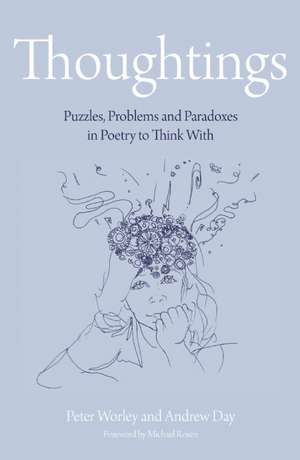

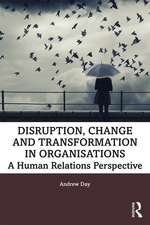
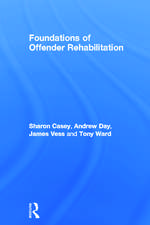
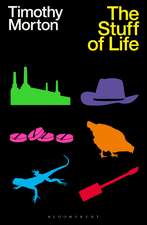
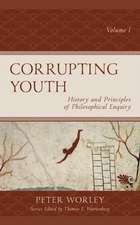

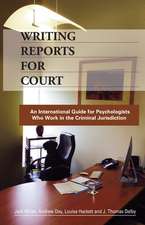
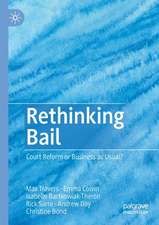

![Das Ende von allem?. Neun Betrachtungen und ein Essay. [Was bedeutet das alles?]](https://i4.books-express.ro/bt/9783150142790/das-ende-von-allem-neun-betrachtungen-und-ein-essay-was-bedeutet-das-alles.jpg)

